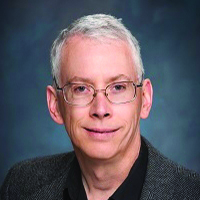By Blair D. Sullivan and Bruce Hendrickson
Combinatorial algorithms are central to many complex problems that arise in the fields of applied and industrial mathematics. Researchers utilize them to model epidemics, optimize supply chains, understand biological systems, enhance computer performance, and make sense of communities, among other applications. Professionals in all of these areas have long been part of SIAM, but until recently they did not have a common home in which to share insights and facilitate collaborations.
To meet this need, the inaugural SIAM Conference on Applied and Computational Discrete Algorithms (ACDA21) took place virtually in July, in conjunction with the 2021 SIAM Annual Meeting. An outgrowth of the recently-founded SIAM Activity Group on ACDA, ACDA21 sought to create a home for researchers who are engaged in the advancement of applied combinatorics across a diverse set of research communities. ACDA21 attendees and presenters showcased the breadth of related fields by exhibiting their research and expertise in discrete mathematics, theoretical computer science, algorithm engineering, operations research, computational biology, combinatorial scientific computing, and a variety of other modeling-based application areas. One of the Organizing Committee’s primary challenges—other than the ongoing COVID-19 pandemic and necessity of a virtual platform—was designing an event that successfully navigated the disparate norms and expectations for conferences and publications across these many disciplines.
To that end, ACDA21 invited submissions in two formats: 10-page papers for competitive archival proceedings (similar to conferences in computer science and data mining) and two-page extended abstracts for presentation purposes only (which offered an easy way for journal-oriented researchers to participate). Both options were popular, and submissions comprised 56 proceedings papers and 22 extended abstracts. The Program Committee—which was chaired by Michael Bender and John Gilbert and included senior researchers from a wide variety of ACDA-related fields—assembled a program that highlighted exceptional applied combinatorics across all relevant disciplines. The committee accepted 21 papers and 11 abstracts, resulting in an acceptance rate of 37.5 percent for the proceedings.
To showcase the rich set of mathematical ideas and broad applications that are associated with discrete algorithms, the Organizing Committee invited six plenary speakers whose work spans the spectrum from foundational algorithm design to advances that are driven by application-related considerations. A particularly timely highlight was Madhav Marathe’s (University of Virgina) talk about challenges in computational epidemiology, including several that arose during the COVID-19 pandemic. Andrew Goldberg (Amazon) delivered a presentation that addressed shortest path algorithms for road navigation, and a complementary Industrial Problems Session featured four researchers from industry: Michael Frumkin (NVIDIA), Edward Rothberg (Gurobi Optimization), Rob Johnson (VMware Research), and Vahab Mirrokni (Google, Inc.). These speakers described combinatorial problems that arise in their respective lines of work. ACDA21 also hosted two minitutorials—“An Introduction to Combinatorial Scientific Computing” and “Combinatorial Frontiers in Computational Biology”—to provide entry points into active research areas and encourage new collaborations.
While building community in a virtual setting is certainly challenging, several noteworthy design choices and elements improved attendee experience and overall engagement. For example, the organizers opted for a non-traditional presentation format that proved to effectively encourage discussion and interaction. The authors of each accepted paper or abstract recorded a 20-minute technical talk prior to ACDA21 that was available for asynchronous viewing before, during, or after the meeting. During the conference, presentations were grouped into thematically related sets of three or four short, live “lightning” talks; a collective discussion and question-and-answer session followed these talks. We believe that this format led to richer conversations and more dynamic experiences than traditional 15- or 20-minute talks with independent question periods, especially in the virtual setting. An ACDA21 Engagement Committee facilitated several additional activities, such as ice-breaker questions at the beginning of each session to encourage casual conversation, regular use of the ACDA Gather.town platform (including the koi pond and virtual coffee), and an “Introduction Blitz” session with slides and brief remarks from over 50 participants.
With the first meeting successfully behind us, the ACDA community is already planning the conference’s next instantiation, which will take place in 2023 and be chaired by Uwe Naumann (RWTH Aachen University) and Lenore Cowen (Tufts University). We look forward to gathering in person for ACDA23 and continuing to build and promote this vibrant new community within the broader SIAM family.
| |
Blair D. Sullivan is an associate professor in the School of Computing at the University of Utah. |
 |
Bruce Hendrickson is the Associate Director for Computing at Lawrence Livermore National Laboratory. |